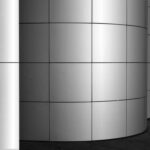Are you thinking about adding a tripod to your photography equipment? Before you go out and buy the first tripod you see, check out this funny video by DigitalRev TV that looks at the pros and cons of tripods to find out if you really need one:
Tripod Pros
1. Stability. Three legs are always more stable than two. Camera shake can completely ruin a photo and people can’t help shake (no matter how steady we think our hands are). A good tripod doesn’t shake.
2. Slows down your work flow. Having to set up a tripod stops you from being trigger happy and just shooting random, pointless scenes. A tripod forces you to slow down, and think about the scene, light, and settings.
3. Good for long exposure, HDR, and double exposure. A high quality tripod ensures stability. Plus, you can always hang something heavy from the bottom to weigh it down even more. Enable mirror-lockup and use a remote to further guarantee zero movement. Even the slightest vibration can mess up your image, so a good, strong, sturdy tripod is the first step in getting sharp shots.
4. A must when shooting video. You definitely need a tripod for video shooting, unless you’re going for a gritty look or shooting documentary or reality TV style. But, for smooth panning and timelapses, for example, you need a tripod.
5. Goes extra low, extra high. Tripods can be adjusted to hold your camera at different levels. They can get down super low to the ground so you don’t have to, and you can set them up high to get high-up shots.
Tripod Cons
1. Not worth it if you can’t get a good one. If you can’t afford a good, quality tripod, then don’t bother. Cheaply manufactured tripods are likely to wobble. There’s no point in wasting your money; wait until you can afford a good one.
2. Slows you down. If it takes too long to set up the tripod, you’re more likely to miss a good shot.
3. Tripod police. Tripods are strictly prohibited in some places, so having one on you will just create hassle. Smuggling a tripod in is not easy and if you get caught, you’re just going to get kicked out or even fined. Even if it’s not prohibited, using a tripod in a crowded place is not always appropriate—it just makes you in the way more.
4. Tripods are clumsy. They can be awkward to carry around, hitting people and objects and just getting in the way.
5. Could be an expensive accident. Sometimes—if you’re in a really crowded place, or have the tripod set up in a not-so-safe position, or are just not careful—accidents happen. You don’t want a slip or bump to knock the tripod over and risk smashing an expensive camera or lens.
The point is, while tripods come with many benefits that allow you to get clear, sharp images, sometimes carrying around a tripod can actually be a hindrance. It just depends on you, your preferred style and your shooting habits. Weigh the pros and cons before you invest in a tripod. In other words, think twice before you spend a lot of money on something you may not even need.
Like This Article?
Don't Miss The Next One!
Join over 100,000 photographers of all experience levels who receive our free photography tips and articles to stay current:










re: #5
A friend and I, and my dog, stopped at Multnomah Falls in Oregon to grab a few frames before heading home after a long road trip. After shooting the falls I asked my friend if she wanted a pic of herself in front of the falls. She said yes and handed me her iPhone saying “this would be good enough for what she wanted”. Since I had my camera on the tripod I put it out of the way over next to my dog where he was tied up to the railing since we were in such a public place. Typically I never need to tie him up as he is more afraid of me leaving him than anything and never tries to “run away”. Anyway, as my friend and I moved into position to get her photo, my dog (a 65-pound lab mutt) tried to follow us. In doing so his leash caught on the tripod knocking it over with of course the heavy part (body and lens) hitting the pavement first with a pretty big crash. The first part to hit was the lens which I had rented for the trip. As it turned out, the body was fine but the lens was not. Thankfully I had rental insurance so in the end it only cost me $120 (10%) instead of the $1200 for a new lens. Two lessons learned… never take anything for granted and ALWAYS buy rental insurance!!!